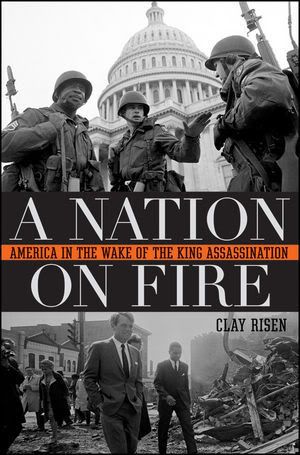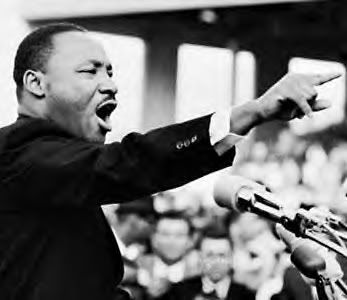cross posted from The Dream Antilles
I’m thinking about times almost forty years ago when I sang, “We Shall Overcome.” I’m remembering how I felt when I sang it, holding hands, swaying, anticipation in the air. I loved the idea of walking hand in hand, black and white together, and at the same time there was always a tension, a tightness in my jaw and in the pit of my stomach, the presence of fear. The song’s purpose was to get ready to do what had to be done. I’m committed to nonviolence, I recall thinking, but there are those who are not. They shot James Meredith, and lynched Emmitt Till, and burned Greyhound buses, and unlike me, they don’t want me to be safe. Uncertainty about what will happen tightens my jaw, while my heart commits me to the cause.
Remembering these fears rekindles my old thoughts. I remember the policemen in the church parking lot writing down the license plate numbers as if it were the Apalachin Crime Convention. My mind flashes from people sitting in a restaurant who stop eating to stare and sneer, to the incomprehensible Mississippi Sovereignty Commission, to the repeated, threatening phone calls, to kids on a school bus yelling hate names through the windows, to the Klan and the police, and wondering how they were different. I think about the person who ran over my dog.
I’m remembering singing “our song” in Port Gibson during the boycott trial and fearfully contemplating the long, dark ride home to Jackson on the Natchez Trace, an unlit, two-lane road that avoids all towns.
I’m remembering the Woolworth’s lunch counter and the bus station in Jackson, notorious before my arrival, at which friends were seriously injured. I’m remembering the two unequal, racially labeled water fountains at the Courthouse in Laurel, and the three bathroom doors upstairs at the Mayflower Restaurant. I’m remembering a black man pumping the gasoline, that his boss won’t let him touch the $5 I try to hand him.
I’m remembering a Mississippi judge hissing that he doesn’t have to put up with Communists– he’s talking about me– in his Court. I’m remembering the Neshoba County Fair and what it must have been like on the night Goodman, Chaney and Schwerner were all killed, how everyone there must have known about it.
Awash in this flood of distant memories, my remembrance of my own feelings is more opaque. I was learning to be a good lawyer, and I was an optimist, believing that eventually, we would confront and overcome racism and poverty and oppression and violence. But I was also numb while my unworkable marriage was sliding slowly, unconsciously and miserably to ultimate dissolution by another southern Court.
Then, in 1973, I started to represent inmates of the sprawling Mississippi State Hospital because Barry Powell, an excellent lawyer and mentor, “discovered” it and convinced himself and me that the issues should be litigated. Most of the people warehoused there, it turned out, were safe to release, but the staff was too small to have any idea who was safe and who might be risky. For obvious cases, like the four older women who played remarkably skilled bridge using sign language to bid and hadn’t seen a doctor in 7 years, release was accomplished simply, by my inquiry if they could go home and my veiled threat of a judicial proceeding if they couldn’t.
The harder cases were like Mr. O’Reilly (not his real name), who also wanted to be released. Doctors thought Mr. O’Reilly might be mentally ill because he still believed that ten years before somebody, a relative most likely, stole a million dollars worth of gold coins from his trailer in rural Oktibehha County and he was mad about it. According to the doctor, Mr. O’Reilly didn’t have any insight into his delusional system and his obvious anger made him dangerous.
Mr. O’Reilly was tall and sunburnt from years of taking major tranquilizers and being outside, and he walked with his back arched, elbows back, hands on the small of his back, another side effect of the drugs. I explained the situation to Mr. O’Reilly. I told him that the doctor didn’t believe the million dollar story, and that frankly, I didn’t either. In fact, I doubted there were ever $50 worth of gold coins in his entire county, and that when he acted angry about the situation, he was scaring the doctor. He laughed, “So is that what all the fuss’s about? How come nobody told me this before?” I shrugged. He said, “Well, I guess I’ll be going home then,” and he shambled off, doing the phenothiazine walk.
At the time the Hospital Staff decided who would be released by individually interviewing all the inmates who requested release. When asked, Mr. O’Reilly said he came in complaining about the theft of a million dollars worth of gold coins, that he didn’t blame anybody for not believing him, and that he doubted the story made sense. Was he mad about it? No, he said, just sad that he didn’t understand the problem earlier. Could he go home?
After Mr. O’Reilly was released, the Mississippi Mental Health Commissioner, Reginald White, told me that he thought I was doing “litigation therapy” and that he was surprised that people who were so obviously disoriented when they arrived were now going home. Did I think it was because of the intensive attention I was giving them? Or was it just time, the drugs, spontaneous change, and “millieu therapy”? At the time I didn’t have any idea. I just wanted inmates who wanted to go home to be released.
And this past January, almost forty years later, with my wife of almost 30 years and two of my three children, I attended an Interfaith Service commemorating Dr. King’s Holiday in Hudson, New York. After wonderful gospel music by the Shiloh Baptist Church choir, a sermon, singing the Battle Hymn of the Republic, prayer and scripture, the time came at last to sing “our song.” It had been a long time. My eyes grew wet. I could feel an aching in my throat and in my heart my continuous, decades long love of justice, fairness, and equality. And there was no fear. Instead, there was only my unbounded joy that now, at last, my kids would learn and experience the magic of “our song.” It was their turn to inherit the possibility of accomplishing the unthinkable, and it was their opportunity to forge a deep, personal heart connection with the community and movement for human dignity and justice.
“We Shall Overcome” has never been sweeter to me. I can feel how very far I have traveled. Although there remains an enormous journey to complete, the holiday celebration brought me the gift of seeing for the first time that my kids will soon be able, by themselves, to carry the movement on. Forty years ago I never could have guessed how special, how complete and wonderful that would feel.




